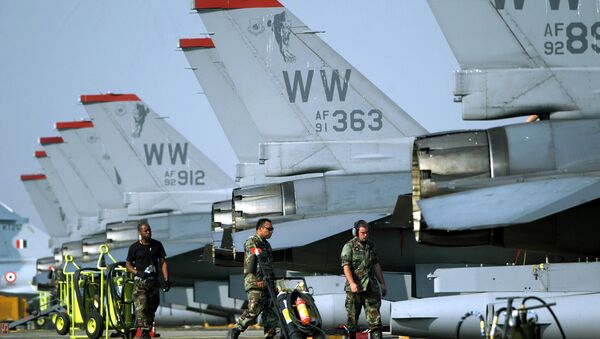The US Air Force needs to "solve a $1.3 billion math problem by later April," Vice Chief of Staff General Stephen Wilson said at a recent conference held in Washington, DC.
The prospect of a continuing resolution — which provides funding to the military on a multi-annual basis, instead of a simply annual basis — could mean that the Air Force will trim down flying hours.
Drones have been celebrated by "moneyball" foreign policy advocates for their low cost per flight hour, and some speculation exists that the reason the US stopped producing and expanding its F-22 fleet was over the Raptor’s absurdly high per-hour flight costs. At the end of the day, when the air force looks to reduce costs, flight hours are the first piece of budget fat to get trimmed.
"I’d have to stop flying sometime this summer … I would have to shut down some hiring at our depots, and only fix things at our installations if they broke," Wilson said.
Further, the budget woes mean that the Air Force has to put on hold approximately 60 new programs. But the more pressing issue, Wilson emphasized, was scaling back flying hours. The service has to cut out two months worth of flying time just to save $500 million, let alone $1.3 billion, the general said.
The budget issues put Wilson in a catch-22: "All of this affects readiness," Wilson said, "the very thing we’re trying to fix right now."
The US Congress has until April 28 to take action on the current continuing resolution or approve a full-year budget. If Congress and the president don’t pass new legislation by then, the government would shutdown. This would be a nightmare scenario for President Donald Trump, who just suffered a major defeat after failing to repeal and replace the Affordable Care Act.
A top Republican advisor to the Trump Administration in Washington, DC recently said that after the healthcare fiasco, a shutdown "is more likely than not," Axios reported.
It could be catastrophic for the economy at large too, not just Trump’s political capital at the Capitol.
“Wall Street is not expecting a shutdown and the markets are unprepared,” for that type of event, the aide added.




